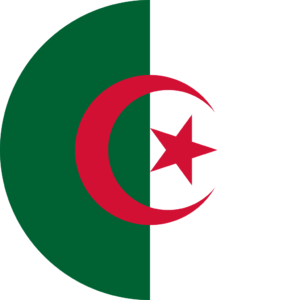INTRODUCING
DR FARES DJAFRI


Country of Origin
Algeria

Qualification
Ph.D. in Islamic Finance, University of Malaya, 2017., M.Sc. in Finance, International Islamic University Malaysia (IIUM), 2012., B.A. in Finance, University of Batna, Algeria, 2008.

Email
fares-isra@inceif.edu.my

Phone Number
A Brief Introduction
Dr Fares Djafri is currently the Head of Research Innovation Unit and a Senior Research Fellow at ISRA Research Management Centre (ISRA RMC). He is an AAOIFI Certified Shariah Adviser and Auditor (CSAA) and Certified Trainer by HRD Corp under the Ministry of Human Resources in Malaysia. His areas of research interest include Islamic banking and finance, Islamic insurance (takaful), Islamic Capital Market, Shariah governance, sustainable finance, wealth management, and Islamic social finance. At ISRA RMC, Dr Fares plays a pivotal role in key projects, including the development of a new takaful model applying the concept of Musharakah Ta’awuniyyah (Cooperative Partnership) for Hong Leong MISG Takaful, the assessment of UNHCR’s zakat collection and distribution mechanism and its potential in the Asia Pacific region, as well as the development of the Tayyib concept for Islamic financial institutions in Malaysia. He also contributes to various consultancy projects through ISRA Consulting and serves as the Managing Editor of ISRA International Journal of Islamic Finance (Arabic Journal).
- Djafri, F., & Laldin, M. A. (2024). Collaborative Efforts of Malaysian Institutions in the Development of Islamic Finance in Türkiye. In Asyraf Isyraqi Jamil and Ömer Altun (Eds.), Deepen the Ties: A Multi- dimensional Perspective of Malaysia-Turkiye Relations (pp. 231-244). Kuala Lumpur: Universiti Malaya Press.
- Djafri, F. (2022). Adoption of the COSO methodology for internal Sharīʿah audit. ISRA International Journal of Islamic Finance, 14 (2), 221-235. [ABDC-C,ESCI,SCOPUS-Q2]
- Kachkar, O. A., & Djafri, F. (2021). Exploring the intentional behaviour of refugees in participating in micro-enterprise support programmes (MESP): is theory of planned behaviour (TPB) still relevant? Journal of Entrepreneurship in Emerging Economies, 14 (4), 549-576. [ABDC,ESCI,SCOPUS]
- Soualhi, Y., & Djafri, F. (2021). Sharīʿah Framework for Pricing Family Takāful Products. Intellectual Discourse, 29 (1), 89–116. [ESCI,SCOPUS-Q2]
- Djafri, F. & Laldin, M. A., (2021). The Role of Islamic Finance in Achieving Sustainable Development Goals (SDGs). In M. Kabir Hassan, Mehmet Saraç, Ashraf Khan (Ed.), Islamic Finance and Sustainable
Development A Sustainable Economic Framework for Muslim and Non-Muslim Countries (pp. 107-126). Palgrave Macmillan. [ABDC,ESCI,SCOPUS] - Djafri, F., Noordin, K., & Mohammed, K. N. (2018). The measurement model of performance determinants: A case study of Islamic insurance (takaful) in Malaysia. The International Journal of
Systems and Ethics, 34 (2), 166-185. [ABDC,ESCI,SCOPUS] - Djafri, F., & Noordin, K. (2017). The impact of workplace spirituality on organizational commitment: A case study of Takaful agents in Malaysia. Humanomics: 33 (3), 384-396. [ABDC,ESCI,SCOPUS]








